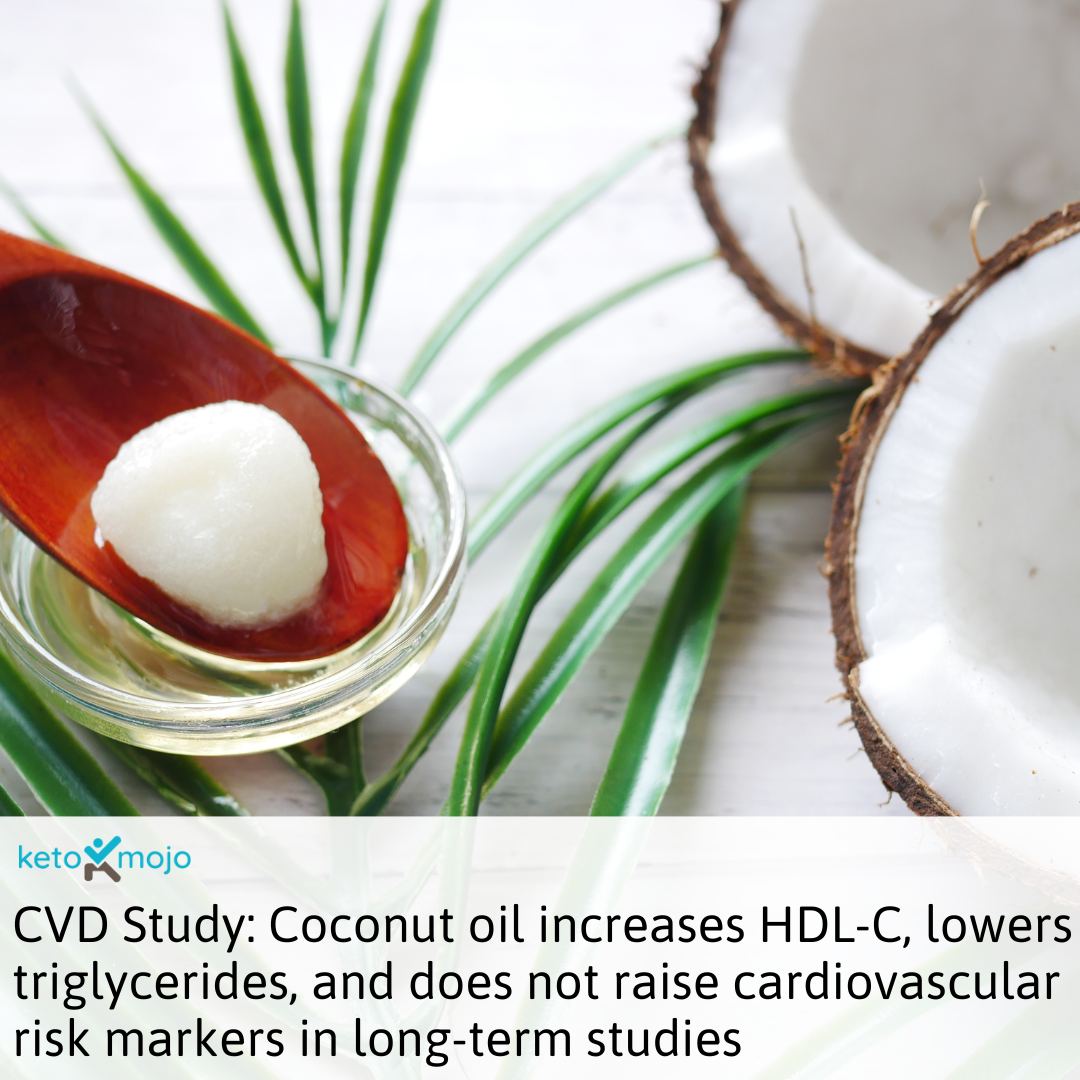Cardiovascular Disease
Analysis of 26 Studies of the Impact of Coconut Oil on Lipid Parameters: Beyond Total and LDL Cholesterol.

Researchers recently conducted a comprehensive analysis of coconut oil’s effects on lipid profiles, drawing from 26 studies over the past 40 years. Previous assessments have focused mainly on total cholesterol and LDL cholesterol (LDL-C), often associating coconut oil with increased cardiovascular risk. This study evaluates a broader spectrum of lipid parameters, including HDL cholesterol (HDL-C) and triglycerides (TG), across short-term and long-term studies.
The study highlights the metabolic differences between medium-chain fatty acids (MCFAs), predominant in coconut oil, and long-chain fatty acids (LCFAs), which characterize most other saturated fats.
Key findings:
🔷 HDL-C Levels increased:
→ Across all studies, HDL-C consistently increased (by 5.8% on average), with increases seen in both short-term (3–7 weeks) and long-term (1–2 years) studies.
🔷 Triglycerides decreased:
→ TG levels dropped in most studies (by 2.9% on average), suggesting a positive effect on lipid metabolism.
🔷 LDL-C and total cholesterol changes were variable:
→ Some studies reported increases in LDL-C and total cholesterol, while others showed decreases or no change. On average, LDL-C decreased by 1.8%, and total cholesterol remained almost unchanged (-0.13%). However, responses among individuals varied considerably.
🔷 Long-term studies found no harmful effects:
→ Two-year studies in populations consuming coconut oil as a staple showed no increase in cardiovascular risk markers compared to other dietary fats.
🔷 Clinical outcomes do not support the avoidance of coconut oil:
→ Studies comparing coconut oil consumers to non-coconut oil consumers found no increased cardiovascular events or mortality.
The evidence does not support the longstanding recommendation to avoid coconut oil due to cardiovascular risk. While it may cause variable changes in total cholesterol and LDL-C, its ability to increase HDL-C and reduce TG suggests a neutral or beneficial effect on lipid metabolism. The metabolic properties of MCFAs differentiate coconut oil from other saturated fats, warranting a reconsideration of dietary guidelines.



